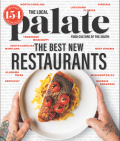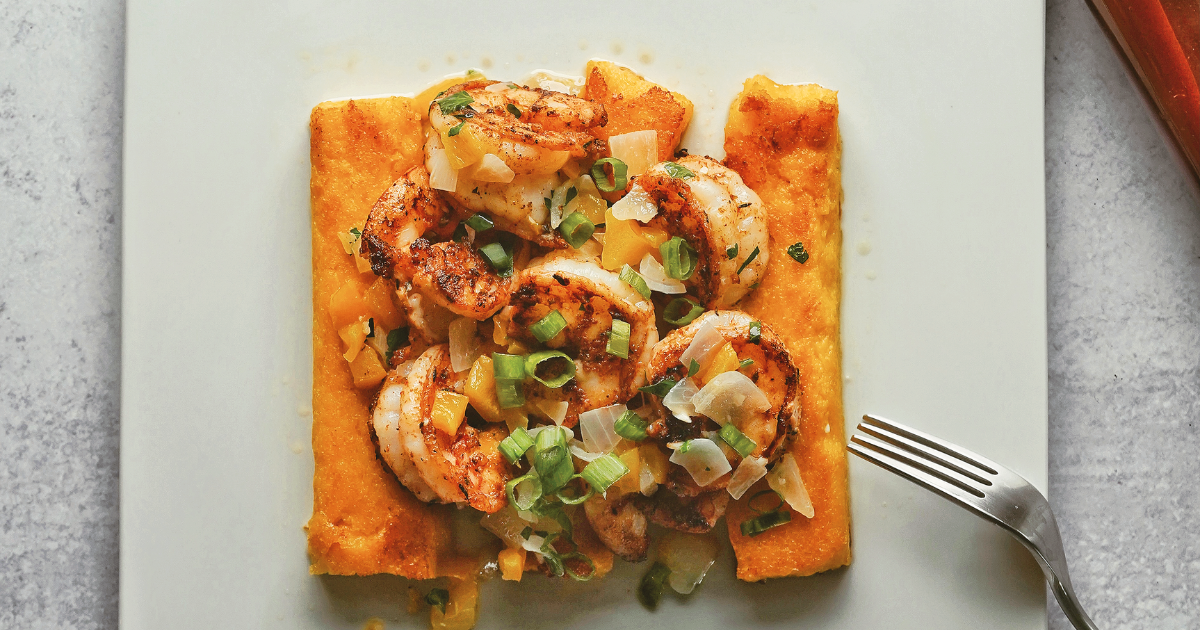Known for his cheeky brand of cooking videos and imaginative takes on comfort foods, Scotty Scott grew up interested in cooking—but he wasn’t always good at it. He begins Fix Me a Plate (Page Street Publishing, 2022) with a childhood anecdote of how his neglect of boiling ham hocks culminated with a visit from the fire department and his very disappointed father. Despite a temporary ban from the kitchen, Scott finally returned to the space with a newfound respect for the cooking process (and careful supervision from his parents).
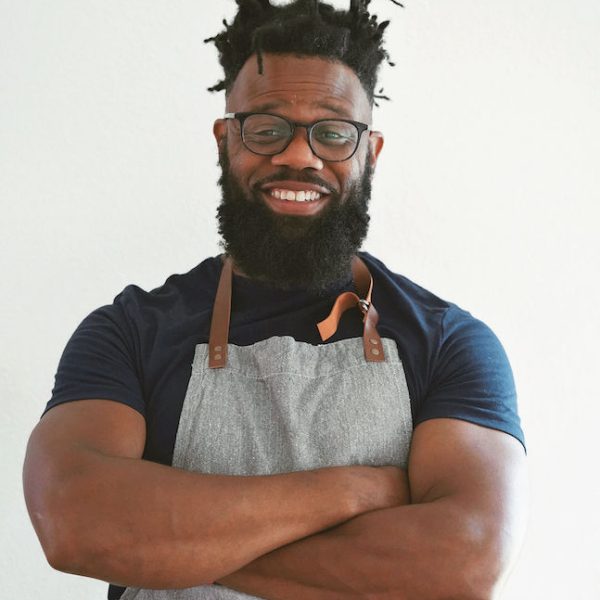
His love for cooking followed him through college and then law school. He started a personal chef service. With the rise of social media, Scott found the ability to tap into another outlet—his creativity. He long had the urge to create but never felt drawn to drawing or music or viewed himself “as much of a writer.” Short videos and photography, however, were a different story. Scott began filming his antics in the kitchen, where he whipped up recipes—either those that he grew up loving or ideas that struck him spontaneously.
Although the recipes were practiced enough to share with an audience, Scott never took himself too seriously in his videos, interspersing his instructions with his own ideas or goofy facial expressions during the cooking process.
His debut cookbook, Fix Me a Plate translates Scott’s signature style into a collection of straightforward recipes. Dishes range from his family favorites (spaghetti sauce), regional foods that piqued his interest (Gullah red rice), and particular meals tweaked to suit his own tastes (don’t expect any scrambled eggs in the breakfast section). To get to know the man behind the videos and the pages, TLP asked Scott to share about his home cook’s approach to recipe development and thoughts on soul food.
Fixing a Plate with Scotty Scott
You write about how it wasn’t until you graduated from law school that you took cooking more seriously. What drew you in?
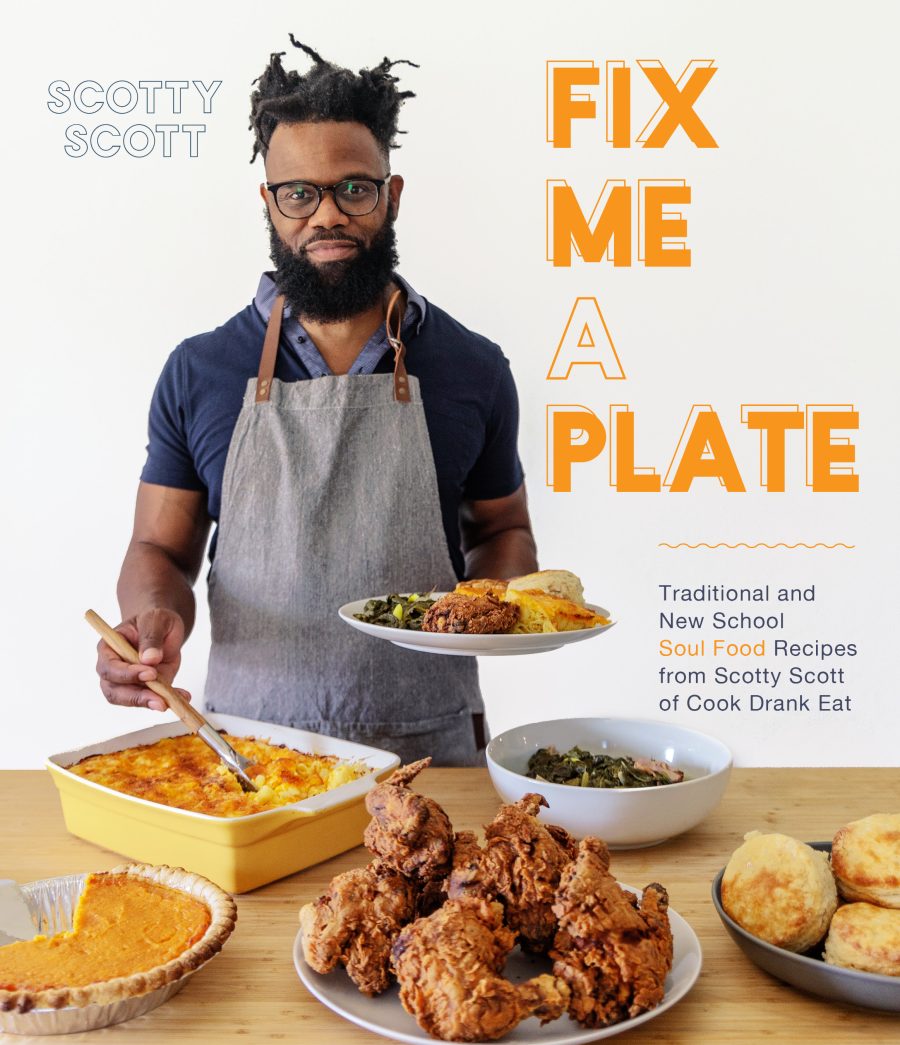
I grew up around it, watching my mother cook and my father on the grill. I always had an interest and a passion. When I was no longer a broke college student, I began hosting dinner parties, and I’d try cooking a bit of everything. My first job out of school gave me a per diem for meals. I’d horde the per diem throughout the week to throw dinner parties on the weekend. I was cooking a bit of everything: Stuff I’d grown up eating and stuff I was curious about.
You credit social media with the development of your cooking style. How did you realize you could make a career of it?
It was a slow process. I didn’t start with that as a goal. I had a personal chef service and thought I could use it to promote myself. There was no notion of influencers. It wasn’t until I got into it that I realized I could be true to what I wanted to be. I enjoy short films. There’s not a lot of recipe development in the video and there’s a recipe afterwards. I remind myself to keep it unique—be true to what I want to portray. I try to give as much entertainment as I can and then on the website I give the bare bones recipes. I had to make my own lane, so to speak.
What impact do you hope Fix Me a Plate will have on conventional perceptions of “soul food” and “Southern food”?
One thing I wish I’d spoken more about is: What is soul food? I was hesitant because I’m not a classically trained chef, but to me, it’s anything that uses cooking throughout the African diaspora. I don’t want soul food to be limited to ten dishes or become stagnated. I want people to embrace growth and change—like the spins I put on traditional recipes, such as the candied sweet potato gnocchi. It’s the same flavors, different textures. It’s pushing the envelope and pushing forward.
In your recipes, you talk about the pressure you felt around creating “soul food” recipes, can you elaborate on that?
When I create a recipe on my own, I don’t put anything out unless I think it’s great for public consumption. It’s different with soul food—they’re tried and true because there are generations of culture behind them. There’s a balance to it: You’ve got to make it your own while keeping it within the parameter of what that recipe is. I wanted to make sure that people perceive it as me taking it seriously.
I did research—how a dish became popular, what makes it a mainstay? I talked to family members who had experience with the recipes and use professionals who are experts in their craft. If I had the opportunity to do another cookbook, one thing that struck me was how much I enjoyed the research.
Fixing a Plate? Scott’s Take on Shrimp and Grits
Blackened Shrimp and Fried Polenta
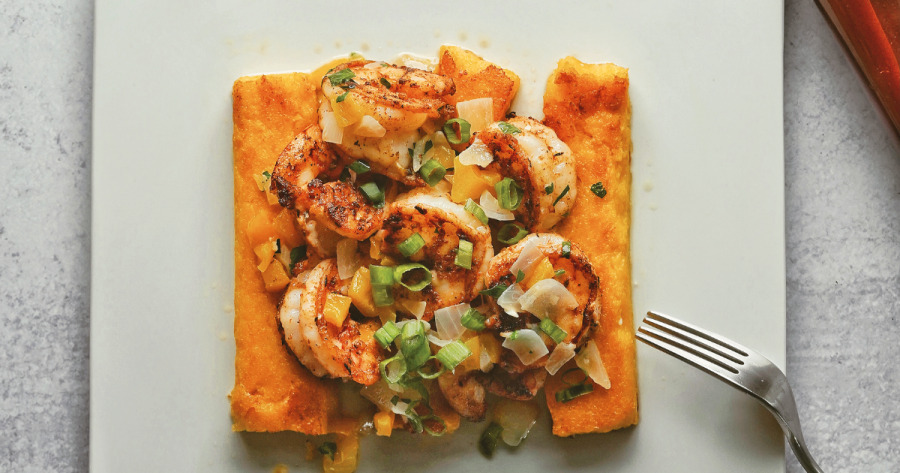
share
trending content
-
Tracing the Black Diaspora at Benne on Eagle
by Hannah Lee Leidy -
Shrimp and Grits: A History
by Erin Byers Murray -
Golden Standard of Carolina Gold Rice
by TLP Editors -
Matthew Raiford Discusses Soul Food
by TLP Editors
More From Bookshelf
-
A Juneteenth for the Twenty-First Century
-
Eight New Cookbooks to Kick Off Summer
-
Flavor and Funk from Turkey and the Wolf
